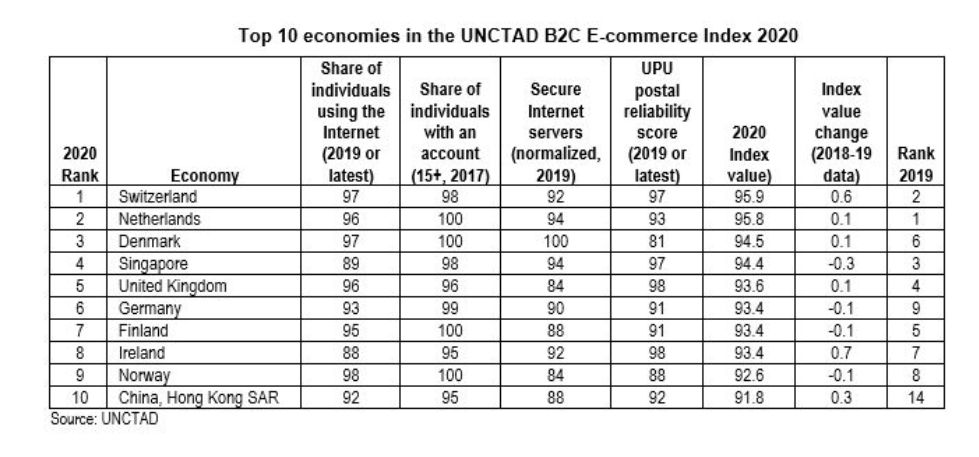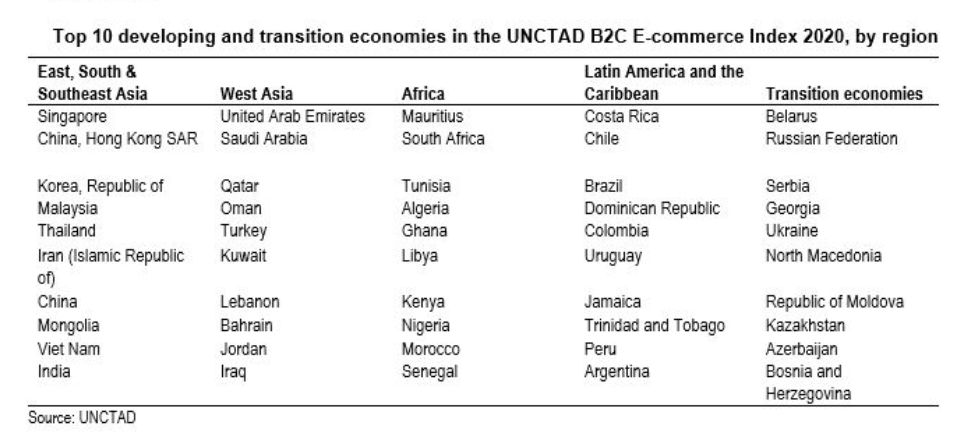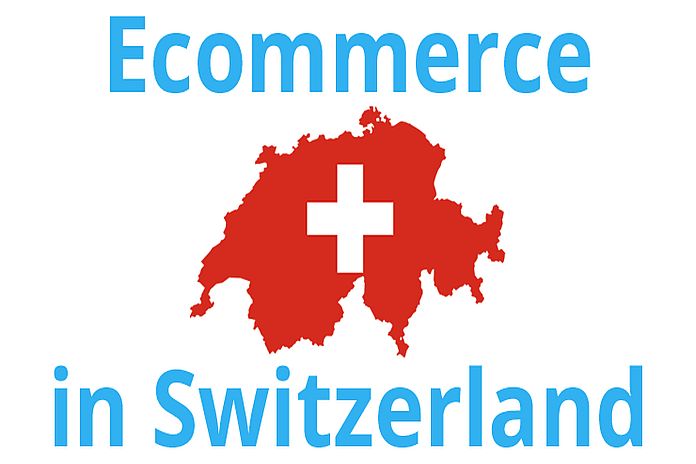GENEVA, Switzerland – Europe remains by far the most prepared region for e-commerce, according to UNCTAD’s Business-to-Consumer (B2C) E-commerce Index 2020, but wide gaps with countries with the lowest level of readiness need to be addressed by tackling weaknesses in those nations to spread the benefits of digital transformation to more people.
For the first time, Switzerland leads the UNCTAD B2C E-commerce Index, just ahead of the Netherlands. In 2019, 97 percent of the Swiss population used the internet. The only non-European economies among the top ten are Singapore, ranked fourth, and Hong Kong (China) in the 10th position.

The index scores 152 nations on their readiness for online shopping, worth an estimated $4.4 trillion globally in 2018, up 7 percent from the previous year.
Countries are scored on access to secure internet servers, reliability of postal services and infrastructure, and the portion of their population that uses the internet and has an account with a financial institution or a provider of mobile money services.
Developing countries: Asia leads the pack
The ten developing countries with the highest scores are all from Asia and classified as high-income or upper-middle-income economies.
At the other end of the spectrum, least developed countries occupy 18 of the bottom 20 positions.
The two largest B2C e-commerce markets in the world, China and the United States, rank 55th and 12th respectively in the index. Although both countries lead in several absolute measures, they lag in relative comparisons.
For instance, internet penetration in the United States is lower than in any of the economies in the top 10, while China ranks 87th in the world on this indicator. As for online shopping penetration, the United States ranks 12th while China takes the 33rd slot.
“The e-commerce divide remains huge,” said Shamika N. Sirimanne, director of UNCTAD’s division that prepares the annual index. “Even among G20 countries, the extent to which people shop online ranges from 3 percent in India to 87 percent in the United Kingdom.”
Also, in Canada, the United States and 10 European nations, more than 70 percent of the adult population makes purchases online. But that proportion is well below 10 percent in most low- and lower-middle-income countries.
“The COVID-19 pandemic has made it more urgent to ensure the countries trailing behind are able to catch up and strengthen their e-trade readiness,” Sirimanne said. The index, she said, underscores the need for governments to do more to ensure more people can avail of e-commerce opportunities.
“Otherwise, their businesses and people will miss out on the opportunities offered by the digital economy, and they will be less prepared to deal with various challenges,” she added.

Changes in the 2020 rankings
The 2020 edition of the index includes a few notable changes from the previous year. In the composition of the top ten positions, Hong Kong (China) replaced Australia. Among the top ten developing economies, Oman replaced Turkey.
The four largest increases in index scores were recorded in developing countries – Algeria, Brazil, Ghana and Lao People’s Democratic Republic, whose scores surged by at least five points, largely due to significant improvements in postal reliability.
Costa Rica became the best performer in the Latin America and the Caribbean (LAC) region, replacing Chile. Mauritius retained the highest score in sub-Saharan Africa, while Belarus again got the highest score among transition economies.
Special focus on Latin America and the Caribbean
The 2020 index takes a closer look at the LAC region, which accounts for 9 percent of the world’s population aged 15 and older and as much as 11 percent of the world’s internet users. However, the region’s share of global online shoppers was only 6 percent of the global total in 2019.

The UNCTAD report notes that five countries account for 92 percent of online shoppers in LAC, much higher than their share (72%) of the region’s population. Postal unreliability is the region’s biggest e-commerce infrastructural weakness, particularly in the Caribbean.
As seen globally, COVID-19 has boosted online shopping in the region. For example, 7.3 million Brazilians shopped online for the first time during the pandemic. And in Argentina, the number of first-time online buyers during the pandemic was equivalent to 30 percent of the 2019 online shopping base.






